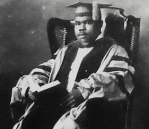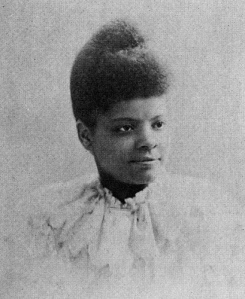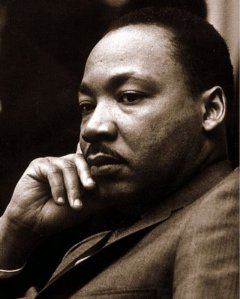THE CULTURE CORNER
________________________________________________________________
THE CULTURE CORNER ANTHEM THIS ISSUE
AFRICA MUST WAKE UP – NAS & DAMIAN MARLEY
________________________________________________________________
“A people without the knowledge of their past history, origin and culture, is like a tree without roots.”
Marcus Mosiah Garvey (1887 – 1940)
Every year in October we celebrate BLACK HISTORY MONTH. Black history is with us every second, minute, hour, week, month and year. PANTHER NEWSLETTER’S CULTURE CORNER will attempt to enlighten you with what they never told you in your history class. Our story will be told right here – So enjoy the journey of clarification.
________________________________________________________________
Blacks in Britain (Part eight)
Not widely known – But true…
1948 – Nearly 500 people arrived in Britain on board the Empire Windrush; (a must read). Though some of the arrivees had already had already been in Britain during the war, over 100 Afro-Caribbeans also entered Britain on the S.S Orbita. The Windrush’s inhabitants were detained on board, interviewed, and most were placed in agriculture, the iron foundries, railways, and in other industries that needed labourers.
Merseyside (Liverpool), one of the most oldest black communities in Britain, already had over 8,000 inhabitants. Motivated by the anti-black “colour bar” used the National Union of Seamen to discriminate against black sailors, whites attacked scores of black people.
Prior to 1948, Britain cultivated an official “laissez-faire” policy toward black immigration during its post-war need for reconstruction labourers. By 1949 however, opposition to unrestricted West Indian immigration began to grow in government circles. The importance attached to the citizenship right of British subjects became the obstacle to tightening controls on the numbers of black migrants to Britain.
1949 – The first colonial black football team from Lagos, Nigeria played at Merseyside, home of Britain’s largest and oldest black community, and defeated the Marine team 5 – 2. The Nigerian victory cheered Merseyside’s black inhabitants who, after fighting for Britain in World War II, had suffered numerous racist attacks from whites (reference 1948 entry). The touring Nigerian team was the first of many colonial teams from Africa and the Caribbean who, from 1949 – 1959, would be used to prove that Britain’s economic and political system was far superior that any offered in Africa. Through “sport politics”, British leaders hoped that “smooth decolonization could be enhanced by closer fraternization between the ‘old masters’ and ‘new inheritors’, thereby allaying the fears of European capital about the removal of protection of the colonial state for capital’s economic activities.”
1950’s – Britain, or the “Mother Country” as referred to by West Indians, requested West Indian immigrant workers to help in the reconstruction of Britain’s post-World War II economy. While Britain depended upon large numbers of cheap labour, the political, economic and social needs of Britain always outweighed those of the Caribbean. Various industries such as British Rail, The National Health Service, and London Transport, directly recruited black West Indian workers from Jamaica and Barbados. By the mid-1950s, most of the West Indies had lost one-third of its workforce.
By 1950, there were over 30,000 ” ‘coloured British subjects’ ” in Britain, and 5,000 had migrated since 1945. Most were from West Africa and the West Indies.
A conflict regarding black seamen in Britain developed between the British Home Office, concerned with maintaining “law and order”, and the Ministry of Labour, who pointed to the low numbers of unemployed blacks to allay fears. In Merseyside and Liverpool however, high rates of black unemployment since 1948 had concerned citizens. A 1950 meeting voiced desires for the deportation of unemployed blacks as well as possible black unrest if deportation resulted. The meeting resulted in the decision that local seaman’s unions should negotiate on how many blacks were needed at each port, while the Colonial Office and the Ministry of Labour would interview those whose labour was no longer needed.
________________________________________________________________
FAMOUS BLACK PEOPLE PAST AND PRESENT
________________________________________________________________
SHE WOULD NOT BE SILENT
Ida B Wells was in England in 1894 when she heard that white Southerners had put a black woman in San Antonio, Texas into a barrel with “nails driven through the sides and then rolled [it] down a hill until she died.” The 31-year-old Wells, a black Southerner, was seasoned to the widespread phenomenon of mob torture and murder that went by the shorthand “lynching”; in fact, she was abroad on a speaking tour denouncing it. Nonetheless, she shed tears over the latest “outrage upon my people.”
Her call to speak out against lynching had come just two years earlier, when a Memphis mob murdered her close friend and neighbour Thomas Moss. The incident started as a dispute among white and black boys playing marbles, but it quickly evolved into an excuse to murder Moss, a successful businessman who was drawing patrons away from a nearby white grocer.
White Southerners explained to Northerners that they lynched only when they had to: when black men threatened, assaulted and raped white women. Wells was determined to expose the lie. As the murders of the woman in the barrel and Thomas Moss attest, white Southerners also killed black women and economically threatening black men. Even when the mobs tore apart a black man who had been found with a white woman, it wasn’t always rape. Sometimes, Wells declared in print, the man was not “a despoiler of virtue,” but had succumbed “to the smiles of white women.” Her editorial Free Speech, the black weekly she co-owned in Memphis, led white residents to destroy the newspaper’s office and threaten to kill her. But even after she was forced into exile from the South, she continued to proclaim — as a banner headline over one of her articles in a New York paper declared in 1892 — “The Truth About Lynching.”
For speaking plainly about rape, sex and murder, Wells lost her home and her livelihood. For the rest of her life, she had to defend her reputation against both white and black people who called her a “negro adventuress” and “Notorious Courtesan.” A black newspaper editor suggested that the public should “muzzle” that “animal from Memphis,” and the New York Times dubbed her “a slanderous and dirty-minded mulatress.”
Wells was an orphan and a poor, single woman who supported her younger brothers and sisters through teaching and journalism. She recognized that “my good name was all that I had in the world,” yet she would not be silenced. Wells used words to fight white Southern lynch mobs, an indifferent white Northern public and, sometimes, black critics who felt that her outspokenness undermined their agenda. Southern white supremacy was cruel and crazy, and she was the rare person who could see beyond the cultural insanity in which she was immersed. For that she paid dearly.
An editorial by Glenda Elizabeth Gilmore
Check out the book: “Ida: A Sword Among Lions” by Paula J Giddings
________________________________________________________________
TRIBUTE TO OUR S/HEROES
Princess Sophia Alexandra Duleep Singh (8 August 1876 – 22 August 1948) was a prominent suffragette in the United Kingdom. She is best remembered for her leading role in the Women’s Tax Resistance League, but she also participated in other women’s suffrage groups including the Women’s Social and Political Union; most of her public life was spent campaigning for women’s rights. Her father was the Maharaja Duleep Singh, her mother, his first wife Bamba Müller. Duleep Singh had been the last Maharaja of the Sikh Empire in Punjab and was exiled from India by the British at the age of fifteen, while Müller was of mixed German and Ethiopian descent. Princess Sophia combined her Indian, European and African ancestry with an upbringing among the British aristocracy. She inherited substantial private wealth from her father upon his death in 1893, and in 1898 her godmother, Queen Victoria, granted Sophia a grace and favour apartment in Faraday House, Hampton Court. Sophia marched at the head of the Black Friday deputation to parliament in 1910, alongside Emmeline Pankhurst, Elizabeth Garrett Anderson and Dorinda Neligan.
Lillian Masediba Ngoyi “Ma Ngoyi”, (25 September 1911 – 13 March 1980), was a South African anti-apartheid activist. She was the first woman elected to the executive committee of the African National Congress, and helped launch the Federation of South African Women. She joined the ANC Women’s League in 1952; she was at that stage a widow with two children and an elderly mother to support, and worked as a seamstress. A year later she was elected as President of the Women’s League. On August 9, 1956 Ngoyi led a march along with Helen Joseph, Albertina Sisulu, and Sophia Williams-De Bruyn of 20,000 women to the Union Buildings of Pretoria in protest against the apartheid government requiring women to carry pass-book as part of the pass laws. On August 9, 2006, the 50th anniversary of the march on Pretoria, Strijdom Square from which the women marched, was renamed Lilian Ngoyi Square. August 9 is also commemorated in South Africa as Women’s Day.
Daisy Lee Gatson Bates (November 11 1914 – November 4 1999) was an American civil rights activist, publisher and writer who played a leading role in the Little Rock integration crisis of 1957. Bates was raised by Orle and Susie Smith, whom she believed to be her birth parents for many years. In “The Death of my Mother,” Bates recounted learning as a child that her birth mother had been sexually assaulted and murdered by three local white men. Her father left the family shortly after her mother’s death and left her in the care of his closest friends. At the age of 15, Daisy became the object of an older man’s attention, L.C. Bates, an insurance salesman who had also worked on newspapers in the South and West. L.C. dated her for several years, and they married in 1942, living in Little Rock. The Bates decided to act on a dream of theirs, to run their own newspaper, leasing a printing plant that belonged to a church publication and inaugurating the Arkansas State Press. The first issue appeared on May 9, 1941. The paper became an avid voice for civil rights even before a nationally recognized movement had emerged. In 1952, Daisy Bates was elected president of the Arkansas Conference of NAACP branches.
Malorie Blackman OBE is an author of literature and television drama for children and young adults. She has used science fiction to explore social and ethical issues. Her critically and popularly acclaimed Noughts & Crosses series uses the setting of a fictional dystopia to explore racism. She was mentioned in the lyrics of Written in the Stars, a song by Tinie Tempah that reached number 1 on the UK singles chart.
King Sobhuza II of Swaziland was the longest reigning monarch in Africa. Having initially opposed modern partisan politics, King Sobhuza or (Ngwenyem) II shrewdly formed his own political party and won all seats in the 1967 pre-independence elections. He abolished the parliamentary system and substituted it with traditional tribal communities. This system was feudal since the Royal Family was at the centre of both political power and land tenure. He died in 1983, leaving behind 33 wives.
General Alfred Dodds (1842 – 1922) was born in St. Louis in Senegal in West Africa of mulatto parentage. He was an outstanding soldier and he conquered some West African kingdoms which he added to the colonial empire of France. Dodds also helped France win many wars and for his heroic feats he was given France’s highest honour. He was made “A Grand Officer of the Legion of Honour.”
James Weldon Johnson (June 17, 1871 – June 26, 1938) was an African – American author, politician, diplomat, critic, journalist, poet, anthologist, educator, lawyer, songwriter, and early civil rights activist. Johnson is remembered best for his leadership within the NAACP, as well as for his writing, which includes novels, poems, and collections of folklore. He was also the American diplomat to Venezuela and Nicaragua. “Lift Every Voice and Sing” became the well-known anthem of US blacks which was written by him. He was also one of the first African-American professors at New York University. Later in life he was a professor of creative literature and writing at Fisk University.
Alaine Locke (1886 – 1954). Born in Philadelphia USA, he became a great American scholar who wrote a great deal about the African influence on American culture during the 1920s and 30s. He was one of the leaders of the Harlem Renaissance, raising the profile of black artists and musicians as well as writer.
Here ends your history lesson for this issue.
________________________________________________________________
Log on for more CULTURE CORNER in December and remember…
“Discrimination is a hell-hound that gnaws at Negroes in every waking moment of their lives to remind them that the lie of their inferiority is accepted as truth in the society dominating them.”
(January 15, 1929 – April 4, 1968)
‘Til next December – Everyting – Bless
share this:
Related
This entry was posted on October 31, 2011 at 3:15 pm and is filed under Articles, Black British Literature, Black History, News, Newsletter with tags Articles, Black British Literature, Black History, News, Newsletter. You can follow any responses to this entry through the RSS 2.0 feed. You can leave a response, or trackback from your own site.



November 16, 2011 at 11:01 am
You have an interesting newsletter, I couldn’t stop reading it, and so I ended up saving this like a beloved. I enjoy your website! I’ll be back again and again….
November 16, 2011 at 11:06 am
This is such a wonderful resource that you’re offering and you give it out for free. I enjoy seeing web sites that know the value of providing a prime useful resource free of charge. I truly loved reading and studying your posts.
November 16, 2011 at 11:15 am
This web site is really a walk-through for all of the info you want to know about and didn’t know who to ask. When I take a glimpse here, I definitely discover the richness of black culture that I didn’t know existed.
November 19, 2011 at 6:26 pm
I’m not going to say what everybody else has already said, but I do wish to comment on your information in the Culture Corner. You’re truly well-informed. I can’t believe just how much of this I wasn’t aware of. Thank you for bringing forth this topic for us. I am truly grateful and actually well impressed.
November 19, 2011 at 6:28 pm
Nice post. I just discovered your website and have to say that I have really enjoyed reading your newsletter content. Anyway I’ll be subscribing to your feed and I’ll watch for your post another time soon.
November 19, 2011 at 6:33 pm
This newsletter is the bizniz! Lots of great info and inspiration, both of which we all need! Keep ‘em coming… I just can’t tell you enough just how much I, for one, appreciate all you are doing.
November 10, 2012 at 5:20 am
Good day! This is the second time visiting now and I just wanted to say I truley fancy reading your web site. I decided to bookmark it at stumbleupon.com with the title: THE CULTURE CORNER – Panther Newsletter and your Domain name:
I hope this is alright with you, I’m making an attempt to give your good blog a bit more coverage.
January 30, 2014 at 3:32 am
An awesome piece of writing, all web viewers will get benefits from it I am sure.